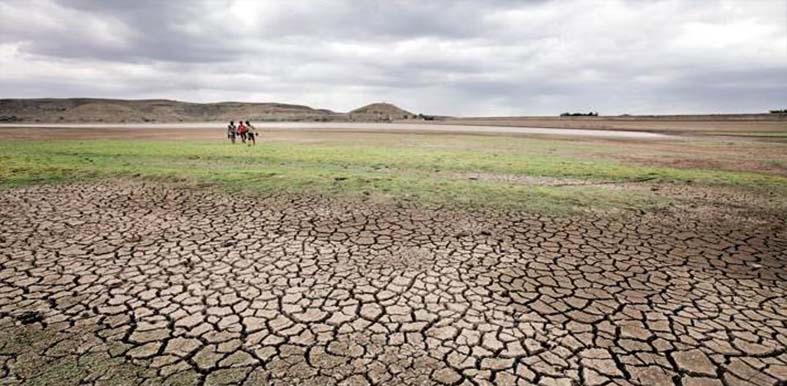Drought-like conditions prevail in Himachal amid record winter temperature; rabi crops at risk

Shimla: Unseasonably high temperatures and a prolonged lack of rainfall have created drought-like conditions across Himachal Pradesh, hitting the state’s agricultural cycle.
Farmers in the region are experiencing delays in the sowing of wheat, a key rabi crop, due to dry fields. The October drought has passed with little precipitation and according to the Meteorological Centre in Shimla, no significant rainfall is expected until November 10.
This forecast leaves farmers anxiously watching the skies, hoping for rain that may come too late for timely wheat sowing.
A senior official of the Himachal Pradesh Agriculture Department said wheat must ideally be sown by November 15 to ensure a strong yield.
“If sowing is delayed beyond this date, the crop yield will likely suffer,” he warned. However, with fields still parched, many farmers have yet to plant, relying solely on rain-dependent agriculture in a state where 85 per cent of farms lack irrigation.
Temperatures break records
Unseasonably high temperatures are compounding the drought’s impact. On Sunday, Solan recorded a maximum of 29°C, while Dharamshala hit 27.6°C, both exceeding previous records.
The statewide maximum temperature has risen by an average of 4.1°C, with Shimla reaching 23.2°C, Sundernagar 29.6°C, Bhuntar 30°C, Una 32.6°C and Hamirpur hitting a peak of 35.5°C. These record highs have made it even harder for farmers to prepare fields left dry by the October drought.
- Challenges for rabi crops
The delay in rainfall has already impacted other rabi crops, with farmers unable to sow gram and peas.
Normally, early varieties of wheat seeds perform best when planted in the first week of November, but the absence of rain has left the ground too dry for most farmers to proceed.
Only those with access to irrigation have managed to plant wheat in select areas, such as Nalagarh, where approximately 6,000 hectares are cultivated.
With roughly 75 per cent of farmers in Himachal Pradesh reliant on rainfall, this year’s October drought has forced them to delay crucial preparations, leaving fields barren after the maize and paddy harvests. Seeds meant for early sowing are at risk of losing viability, potentially leading to reduced yields.




